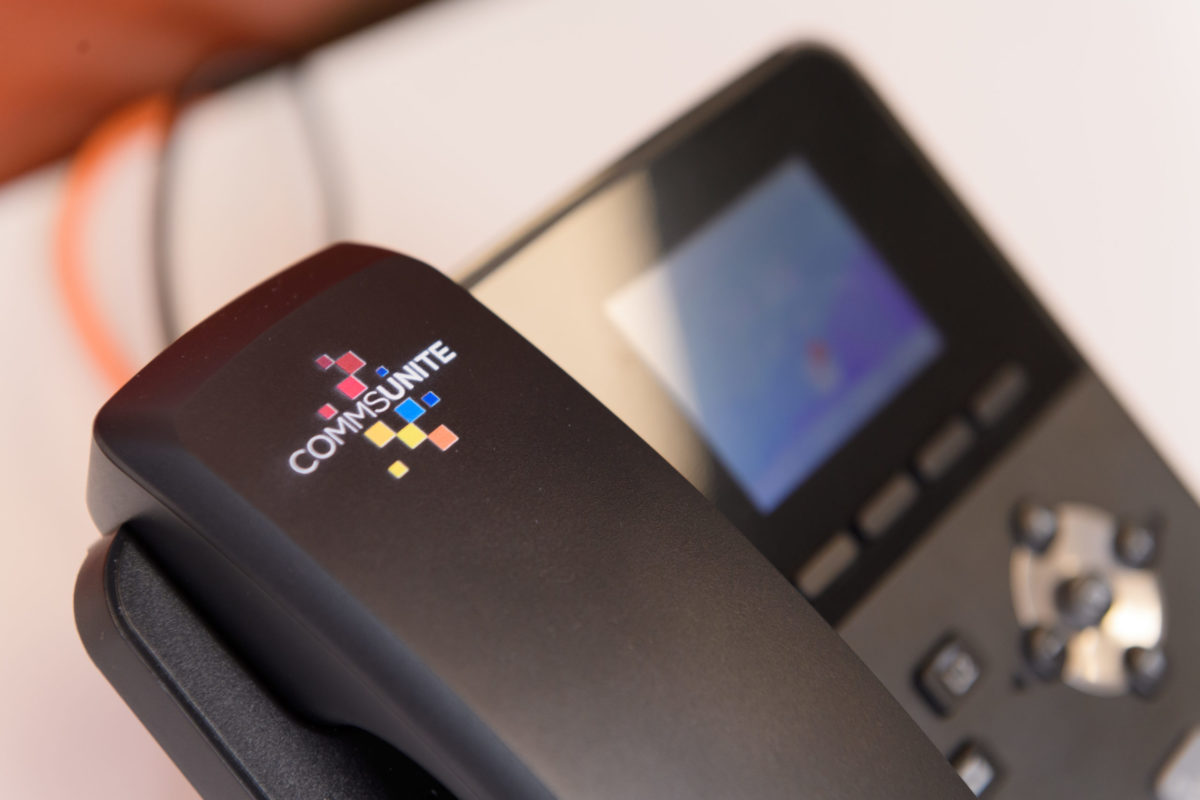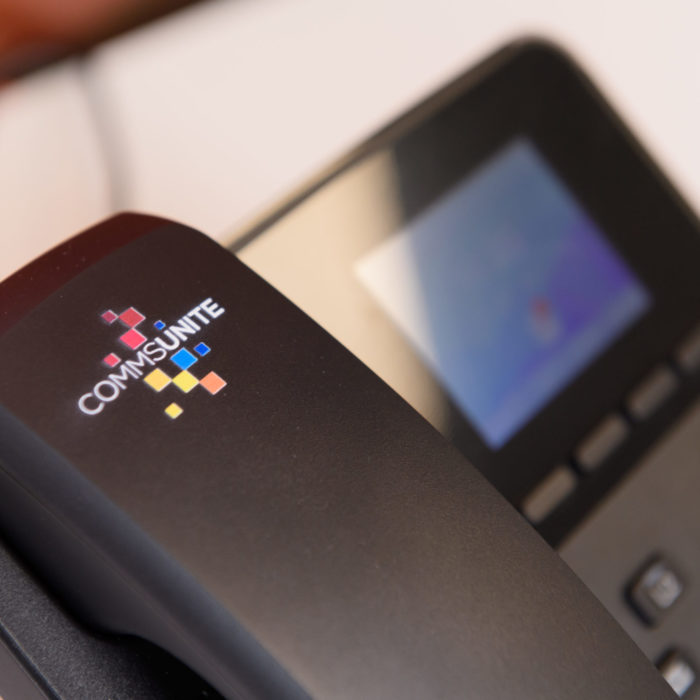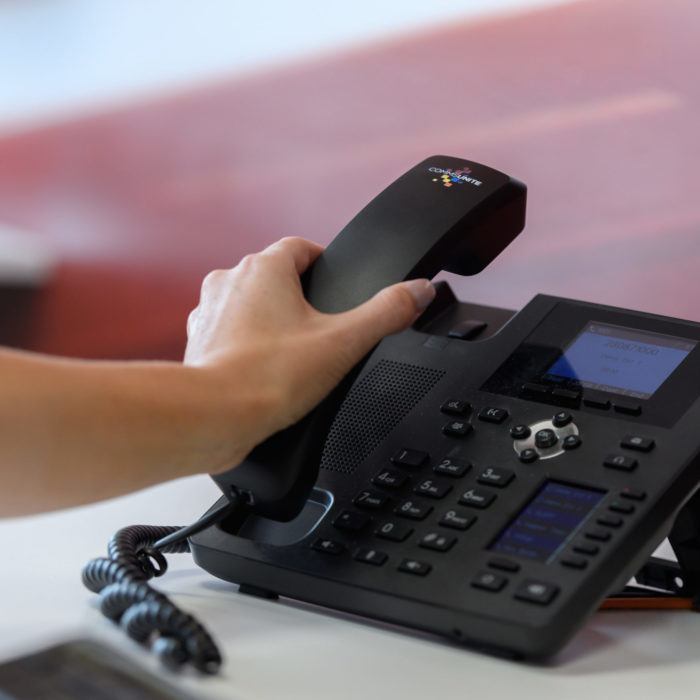
A Guide to VoIP – How Does VoIP Work?
Want to future-proof your business’s telecommunications? Then you’re in the right place. In this guide, you’re going to learn what VoIP is, how it works and its benefits over a traditional phone line. We’ll also discuss the features VoIP offers and explain how it can take your business’s communications to the next level.
So, whether you’re the owner of a fledgling startup or sit proudly at the helm of a growing SME, here’s everything you need to know about VoIP.

What is VoIP?
Voice over Internet Protocol, known as VoIP, is a group of technologies that enable you to make a voice-based phone call over an internet connection rather than using a traditional landline.
Using VoIP, your voice is converted into a digital signal and sent over the internet so you can make and receive calls. Unlike traditional phone systems where you are limited to a single desk phone in your office, you can make and receive calls using desktop computers, laptops, smartphones (via an app), tablets and VoIP-compatible office phone sets.
One of the real benefits of VoIP is just how cost-effective it is. As all calls are made over the internet, both domestic and international calls are extremely cheap and business VoIP providers often give you unlimited minutes at no extra cost. You also get access to a whole host of internet-enabled features, such as voicemail, conference calls, CRM integrations and more.
How does a VoIP phone system work?
Voice over Internet Protocol might sound complicated but the mechanics behind VoIP phone systems are actually quite simple.
Here’s how it works:
- You make a call from your computer, smartphone or VoIP handset.
- A VoIP system such as an app or adapter (depending on the device you use) converts the analogue sound wave into a digital sound wave.
- The digital signal passes to your internet router, where it’s sent to the servers of your VoIP service provider.
- The call reaches the VoIP servers and is routed to the recipient.
- Your customer, client or colleague receives the digital wave as an audio sound on their phone and the whole process starts over again.
The beauty of this process is it all happens almost instantly, so you won’t notice any delay during the call. And as VoIP is a more efficient way of transferring data than the traditional Public Switched Telephone Network (PSTN), the sound quality is as good as and often better than a landline phone call.
As VoIP runs over the internet, all of your data is stored securely in the cloud. You can then manage every aspect of your VoIP system using an online dashboard. You can add new numbers, adjust your contacts and manage all of your VoIP features. All you need to run a VoIP phone system is a high-speed internet connection, a VoIP phone or softphone (we’ll explain that later) and a VoIP service provider.

VoIP and Your Business
VoIP is perfectly suited to business applications because it offers far more flexibility than traditional phone lines at a great price. Instead of having your own on-premises Private Branch Exchange (PBX), which switches calls between your users, all you need are VoIP configured desk phones. That’s not to say you can’t benefit from VoIP technology if you do have a PBX as we can work around that easily.
So how does VoIP fit within your business? These are the options available to you:

Leading VoIP phone features
As well as being able to make cheaper business calls from anywhere, most VoIP phone systems are stacked full of features that can improve your business’s communications.
Here are just a few of the features to look out for:
VoIP system requirements
So what sort of tech do you need to get a VoIP phone system up and running in your business? Not an awful lot. Good broadband and wireless connectivity are a must, but you don’t need to worry about ultra-fast broadband speeds unless you have many users and lots of demanding features. The typical bandwidth required for VoIP is 100 Kbps per device, so a reliable DSL, cable or fibre connection should do the trick.
You also need a device to make and take your calls. Session Initiation Protocol phones, known as SIP phones, connect businesses to VoIP service providers, and although they look the same as normal desk phones, you can enjoy all the features and functionality of VoIP.
If you don’t want a desk phone – we are in 2022 after all – then you can create a so-called ‘softphone’ by downloading a VoIP app on a smartphone or computer. And, as the voice data is directed through your VoIP provider, your personal Caller ID will be hidden.
What’s the right VoIP system for me?
There’s certainly no shortage of choice, with plenty of providers offering slight variations on a theme. But having so much choice can sometimes make your life harder.
When making your choice, there are a few things you should consider:
- Upfront and monthly costs
- Reliability and uptime
- Plans, features and customer support
- Security
- The provider’s track record
- Customer reviews
It’s also vital that you know exactly what you need before you start shopping around. Take the time to evaluate your existing telephony system and understand where it falls short of your business’s and employees’ needs. Once you know that, you can then look for packages that are a good fit without paying for features you don’t need.
Read our guide to some of the best VoIP telephony systems.
Get expert advice on VoIP phone systems
Whether it’s moving to VoIP phone systems or SIP trunks, we can help you implement the most efficient and cost-effective telephony system for your business. Call us on 01473 599020 or email hello@comms-unite.co.uk to discuss your requirements with our team.



